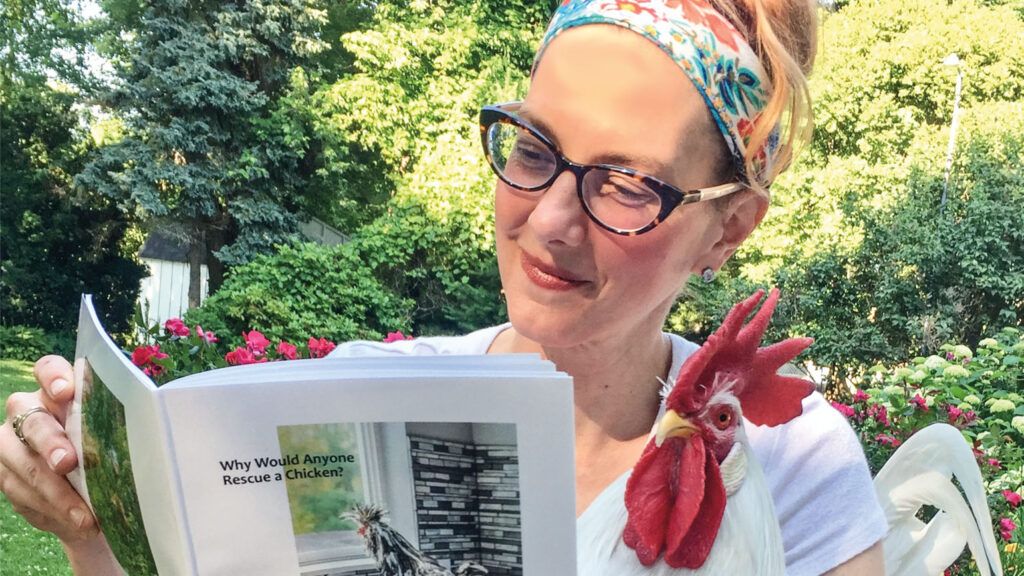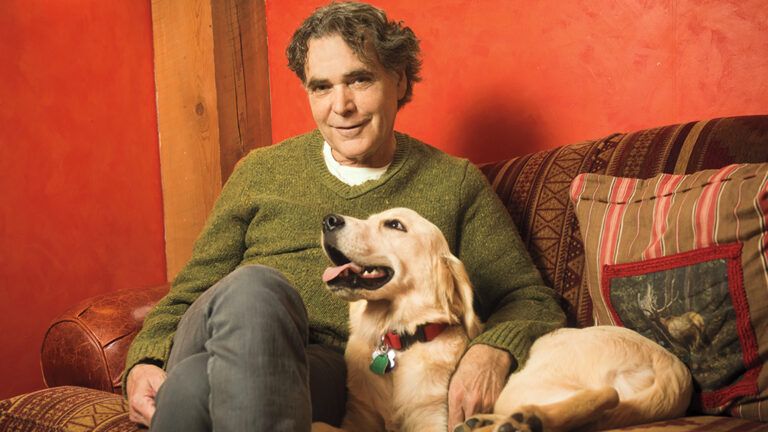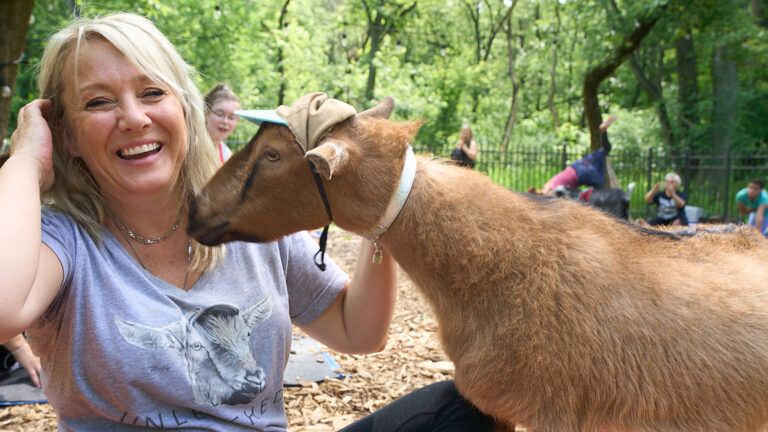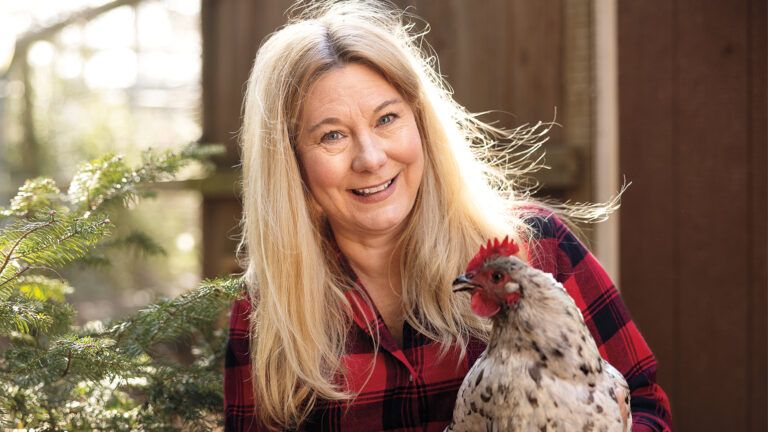Everyone who lived through World War II has a story to tell. My story is about my family’s farm dog Tippy. Maybe you’re wondering what a farm dog has to do with a world at war. All I can say is that Tippy was no ordinary dog.
I grew up on a 113-acre mixed-crop farm in southeastern Texas, halfway between Houston and San Antonio. My dad, James, and my two older brothers, Harry and James Jr., grew peanuts, cotton, corn and tomatoes. I helped my mom, Effie, with her kitchen garden. Mom was a master gardener. She kept us fed year-round with potatoes, peas, sweet potatoes, turnips, radishes, lettuce and greens, plus a mouthwatering assortment of fruit.
The Great Depression had hit our part of Texas hard. The war made life even more complicated. We were a patriotic family, and my brothers enlisted as soon as they could. Dad needed their help on the farm, but he knew our country needed them more. He was a veteran himself, having been wounded while serving as a machine gunner in World War I. He even wanted to enlist as a trainer, but he’d hurt his shoulder in a farming accident.
Harry helped with one last tomato crop, then joined the Marines in early 1942. James Jr. enlisted in the Navy that fall, the day he turned 17. I was 11. More than anything I wanted to put on a uniform like my brothers and fight the enemy. It broke my heart having to stay home. But Mom said God was watching out for our family and for our country too. My brothers were needed overseas, while we were needed here.
A few months before James Jr. enlisted, Mom and Dad had given him a puppy to raise, a collie–Australian shepherd mix. We already had two farm dogs, both of them squirrel-hunting hounds, but Dad wanted one more.
The puppy was all black except for a white spot on his chest and white at the tip of his tail. James Jr. named him Tippy because of that tail.
Tippy was one smart dog. James Jr. took him along to help with his chores, especially herding our flock of 200 chicks, which Dad intended to raise into egg-laying hens. Tippy was still a puppy, but he knew just what to do. He kept those chicks—and our other hens and roosters—out of the pigpen, where they liked to steal the pigs’ feed.
We had one stubborn rooster who refused to leave the pigpen and generally went wherever he pleased. He thought he was king of the farmyard. Tippy showed him otherwise. Any time that rooster acted up, Tippy gave him a sharp nip in the tail feathers.
Tippy liked to greet James Jr. by jumping up and licking his face. After James Jr. was gone, though, Tippy became my responsibility. I loved that dog. He was affectionate but also a no-nonsense working farm dog. If I couldn’t serve in the war, at least Tippy and I could help keep the farm going.
One day, Mom, Dad and I came back to the farm from an outing and saw Tippy trotting toward us with something in his mouth. A dead chick! Tippy dropped it at our feet.
“Bad dog, Tippy!” cried Dad, picking up the chick to show him. “No!” I felt sick. Why would Tippy do such a thing? He took care of those chicks as if he were their mama. Dad kept a sharp eye on Tippy after that. We couldn’t afford to lose any more of those chicks.
But a few days later, it happened again. There was Tippy, trotting toward us with a dead chick. “I’m warning you!” Dad said, shaking his finger at Tippy. “One more time and that’s it for you, dog!”
I pleaded with Tippy not to do it. I watched to see whether he was eyeing those chicks. He acted normal. Then it happened again.
“That’s it,” said Dad. “That dog has got to go.”
I begged and pleaded with Dad, but his mind was made up. That dog was bad news. Tippy had to leave the farm. Right away.
“We can’t just turn him loose,” said Mom. “He’s James Jr.’s dog, so we’ll give him to the military. That’s what James Jr. would want.” Of course, we couldn’t ask James Jr. because he was on a ship somewhere in the Pacific. It was a mournful day when we took Tippy to the train station at Hallettsville, the county seat, and sent him off to the Army recruiting office. What would they do with him? I wondered. I pictured him running around, frantic, looking for us.
A few days later, Dad came in the house, looking mortified. “I just shot a fox that was trying to kill one of the chicks,” he said. “It wasn’t Tippy after all. That dog was bringing us those chicks to warn us about the fox. I bet he’d been running the fox off.” It was too late to get Tippy back. I just couldn’t wrap my mind around it. If God was really watching out for us, like Mom said, why would he let a mix-up like that happen? Now three members of our family were fighting for the country.
One day, Mom read a brief article in the San Antonio Express about an Army dog with black fur injured by a bomb somewhere in the Pacific. The article said the dog recuperated for two weeks and returned to service.
“That sounds like Tippy!” Mom said.
Dad looked skeptical. “There are a lot of Army dogs,” he said.
Finally the war ended and, to our amazement, the Army sent Tippy home! Harry and James Jr. were still serving out their enlistments.
I was overjoyed to see Tippy. He looked just the same, ready to get right back to work. He had to wait to herd chickens, though. The Army recommended keeping him on a leash for two weeks to help him re-acclimate to civilian life.
Harry came home on a leave from the Marines and was outraged about the leash. “That dog’s a veteran,” he said. “Set him loose.” We untied Tippy and he ran around the farmyard, checking everything out as if he’d never even been gone.
Suddenly he spotted the rebellious rooster making a dash for the pigpen. Tippy ran after him and gave him a sharp nip in the tail feathers! James Jr. came home on leave a short time later. He arrived late at night while everyone was asleep. He was nervous coming inside. He’d been away a long time.
He let himself in quietly. Before he’d even put down his bag, he heard paws scampering on the wood floors. As if James Jr. had never left, Tippy recognized the sound of his master’s footsteps. He came tearing around the corner and leaped on James, licking his face.
Tippy returned to work, herding chickens and keeping the rooster in his place. Sometimes I wondered what he’d seen in war. If he’d even seen much of it. We wouldn’t know for a long time. Not until several years later. One day, a traveling linoleum salesman pulled up in a car. He got out with his bag of wares. Right away, Tippy started running circles around him, barking excitedly and jumping up to lick him. The salesman was taken aback. Then took a long, hard look at Tippy.
“Say, did your dog serve in the Army?” he asked. We nodded.
“This must be Tippy!” he cried.
“Tippy, old boy.” He held Tippy and rubbed his ears, as the whole family watched in awe.
“This dog and I served together in the Pacific,” the man explained. “He was the best sentry dog ever. So smart. Never forgot a smell. He saved our lives so many times by smelling the enemy coming.”
He smiled at Tippy. “Brave too. He was injured by a bomb once. Took him two weeks to recuperate, but he went right back into action. I loved this dog. You’re lucky to have him.” Everyone who knew Tippy felt lucky. Except maybe for a certain stubborn rooster on the farm, missing a few tail feathers!






